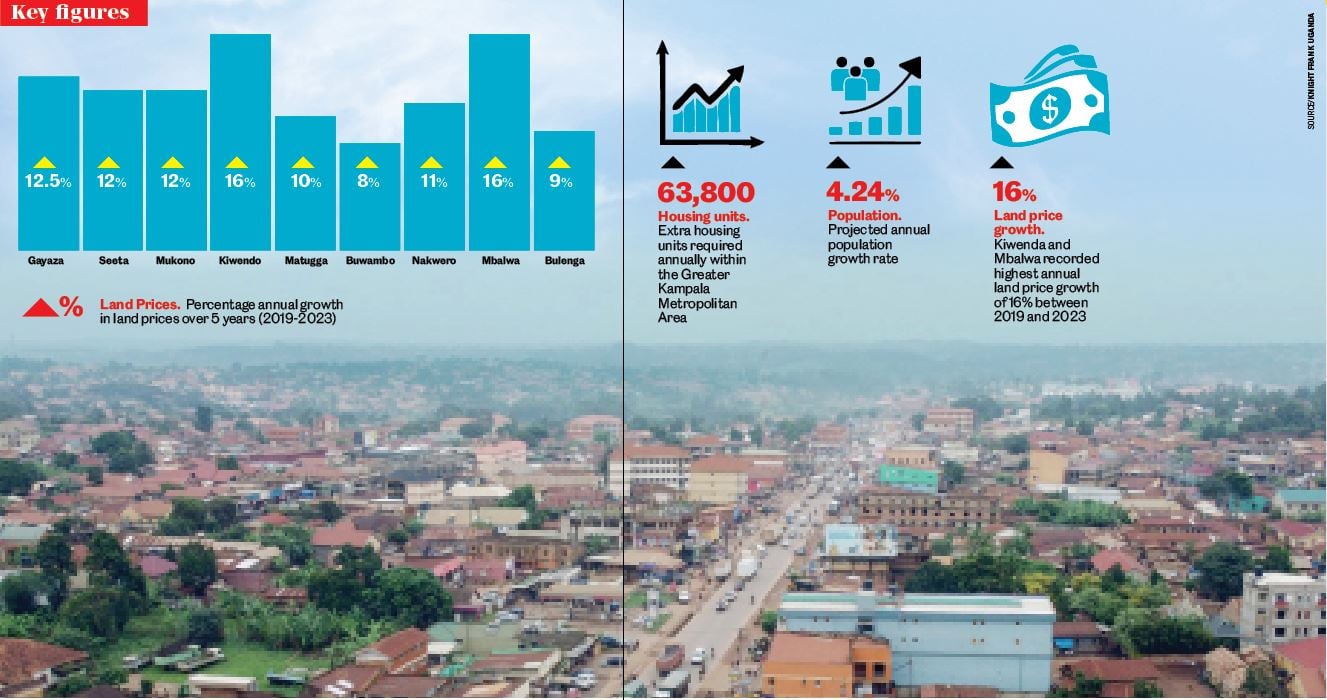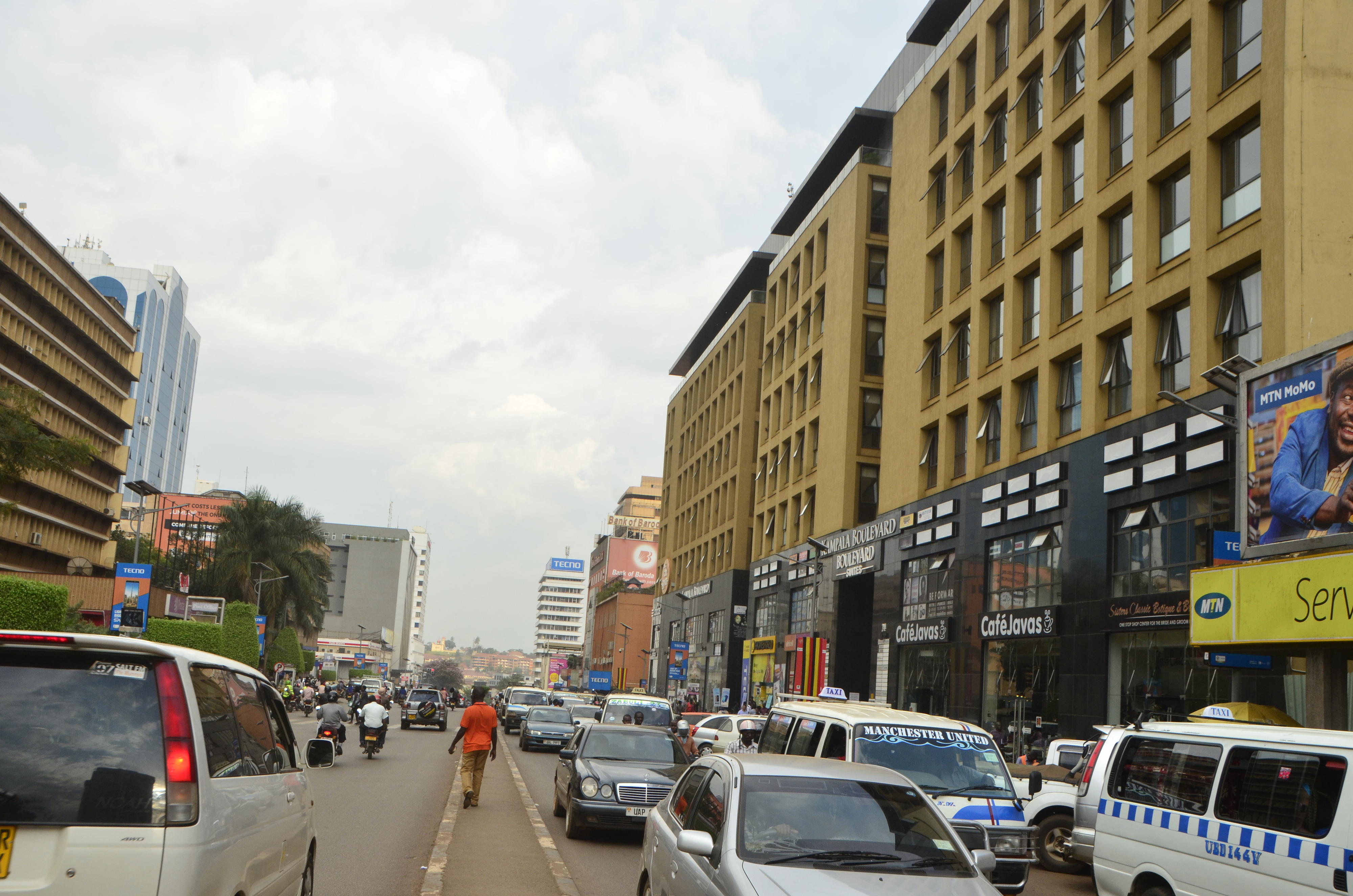Prime
Real estate investment opportunities in commuter towns

On average, a one-way taxi fare from a commuter town to the city centre ranges between Shs2,000 and Shs5,000. PHOTO/file.
What you need to know:
Trending. Commuter towns are typically located within 20 - 30 kms from larger cities. They present various real estate investment opportunities ranging from rentals, schools to leisure and hospitality facilities...
Commuter towns on the outskirts of Kampala city are gaining traction, as more people opt for quieter, calmer, and more suburban living. Lured by more affordable land, the potential for capital appreciation, improved access to amenities and services, and better road infrastructure, residents are willing to endure longer commute times to their places of work in and around the CBD.
Commuter towns, often referred to as “bedroom communities” or “dormitory suburbs”, are predominantly residential areas, where a significant portion of residents regularly travel to a nearby urban centre for work. They emerge when the employed or working class are priced out of the city, leading them to seek affordable housing in nearby towns. In Kampala, these towns have emerged on the city fringes, in the Greater Kampala Metropolitan Areas of Wakiso, Mukono and Mpigi, within a 30-kilometre radius of the CBD.
Key commuter towns that have grown over the past decade include Gayaza, Bulenga, Seeta, Magigye, Nabbingo, Nabweru, Matugga and Buwambo among others. The Greater Kampala Metropolitan Area has evolved into the go-to destination for the development of owner-occupied homes, especially for those seeking affordable and sizable land parcels with potential for creative development.
Commuter towns situated on major transportation arteries, such as Gayaza Road and Jinja Road, have witnessed a surge in demand due to their connectivity to public transport networks and other supportive amenities.
Investment opportunities
Commuter towns in and around Wakiso, Entebbe, Mukono, and the GKMA present various real estate Investment opportunities some of which are listed below:
1. Residential sector.
Investors should consider developing or purchasing residential properties in commuter towns. These include single-family homes, townhouses, and apartment units targeting the growing population of individuals who work in nearby cities like Kampala but prefer to live outside of it for a quieter lifestyle. Development of affordable housing units for sale targeting the Middle-Income Population (Condominium Units and Bungalow Houses).
Demand for housing units to buy has emerged within the commuter towns within a price point of Shs100m to Shs350m. There are few houses available on market for sale in most of these commuter towns and in most cases the offerings are by individuals who are moving to other locations. Investors could leverage on the economies of scale by setting up estates with houses for sale.
2. Residential rental properties.
There is a demand for rental properties in commuter towns due to the influx of people seeking affordable housing options as students, business people or employees. Investing in small apartments or rental houses can yield steady income whilst also addressing the acute housing shortage in the city (Over 63,800 units required annually within the GKMA).
3. Commercial property development.
The commuter towns have a growing business sector, providing opportunities for commercial property development. This includes office space, neighbourhood retail stores, or mixed-use buildings that cater to the needs of the local population. Neighbourhood malls are being established in commuter towns such as Gayaza, Matugga, Kitukutwe, Sonde, Kasangati and Matugga among others.
4. Hospitality sector.
Some commuter towns are attracting tourists due to their natural beauty, proximity to green spaces, conservation areas, lakesides and recreational activities. The Hospitality sector (Eco lodges and boutique hotels) offers opportunities for both tourists and patrons looking for weekend getaways, conference venues close enough for a day trip, but far enough to allow a change of scenery, and events venues.
5. Land banking.
Land prices in commuter towns are generally relatively more affordable compared to major cities. Therefore, purchasing land for future development or resale can be a viable investment strategy.
Areas especially within 25 km to 35 km radius from the city centre still have vast tracts of affordable vacant land which can be acquired and held for future use.
Areas such as Kiwenda, Vumba, Buwambo, Matugga, and Mpigi among others are viable locations for land banking. The population within GKMA is projected to reach 8.5 million by 2030, thus providing the necessary demand for land within serviced and planned land estates.
6. Infrastructure development.
Given the population growth in the subject commuter towns, there is a need for improved infrastructure. Investors can explore opportunities in developing roads, utilities, and other amenities that support the growth of these areas.
7. Gated communities.
Developing gated communities with security features and shared amenities can be attractive not only to potential homebuyers looking for a safe and well-maintained residential community,, but also for assisted living accommodation, and retirement homes.
8. Education and health
Establishing schools and health care facilities to provide essential services to the resident population in the commuter towns.
Demographic composition of commuter towns include young marrieds, full nesters and professionals with school going children thus requiring these amenities. Several schools and health facilities have been set up within the commuter towns, but our research indicates that demand continues to outstrip supply.
9. Leisure and entertainment
Developing sports centres and astro turf pitches to meet the recreation and sports requirements of the predominantly youthful local population. 75 percent of the population within the GKMA area is below the age of 30, this is the population that is actively engaged in sports and yet the standard plots of 0:12 acres do not leave enough room for recreational activities.
Several recreational centres such as Busika Adventure Park, Forest Park Buloba among others have been set up however there is demand for more sports centres in areas that are under served.
10. Student accommodation
The setting up of institutions of higher learning such as universities, technical institutes and polytechnics among others has created an investment opportunity in the commuter towns.
Student hostel facilities are required in areas around these institutions to provide accommodation for students. Several universities have been set up within commuter towns which include Nkumba University - Entebbe, Uganda Christian University -Mukono, Bugema University -Bugema, Africa Renewal University -Buloba among others.
At a glance
Shs100m – Shs350m
Residential properties.
Demand for housing units to buy has emerged within the commuter towns. They are often priced between Shs100m and Shs350m.
Student hostels
The setting up of institutions of higher learning such as universities and polytechnics has created an investment opportunity for student hostel facilities.
75%
Leisure facilities
Developing sports centres and astro turf pitches to meet the recreation and sports requirements of the predominantly youthful local population. 75 percent of the population within the GKMA area is below the age of 30.
Shs2,000 – Shs5,000
Commuter town taxi fare.
Average one-way taxi fare from commuter town to city centre.
Primary demographics
Commuter towns are normally a middle income market that includes young marrieds, professionals and full nesters




